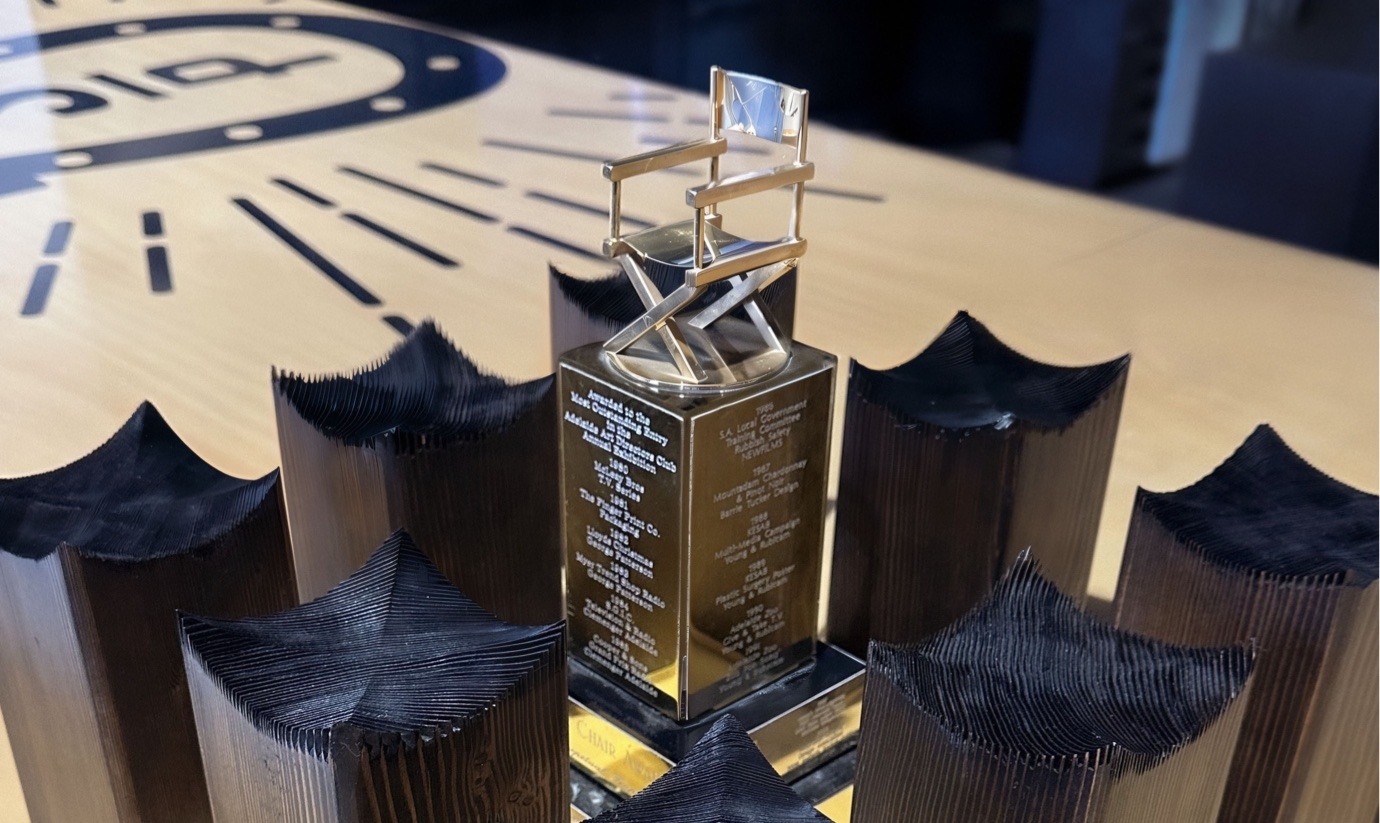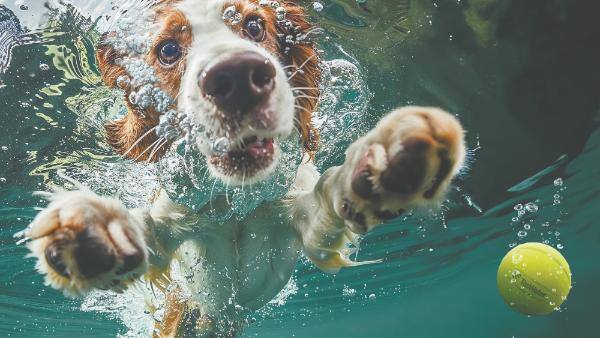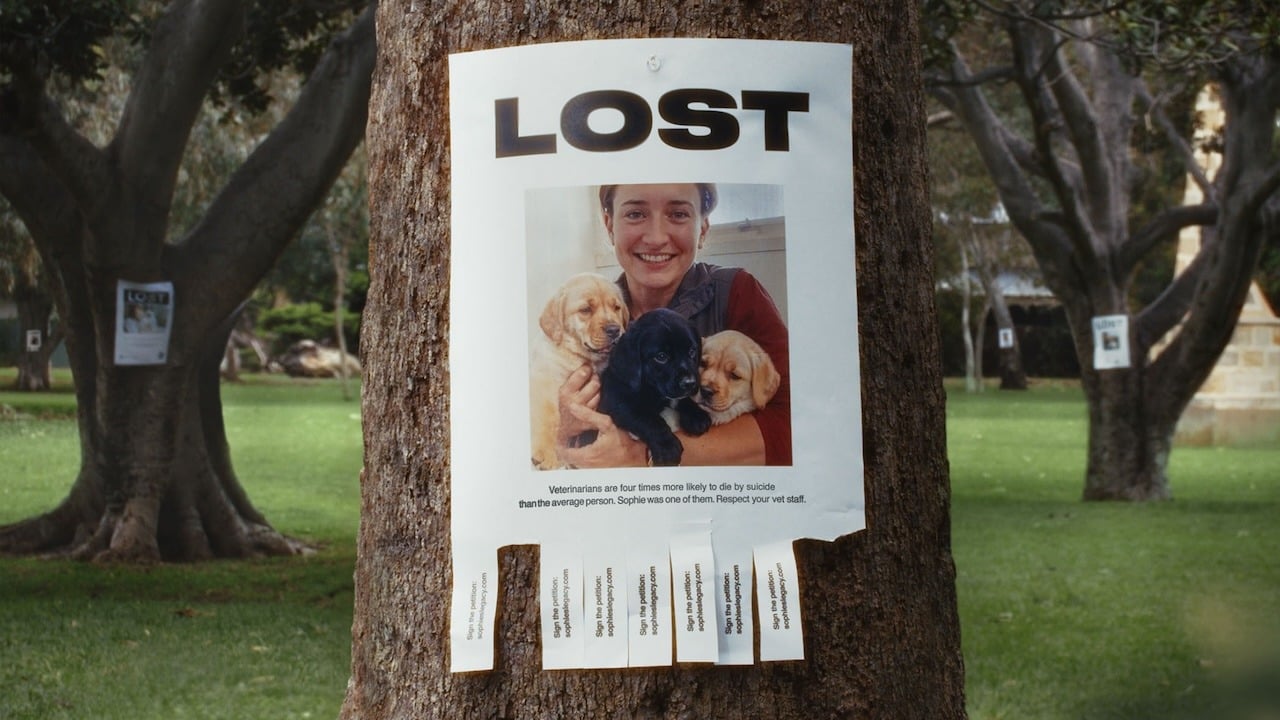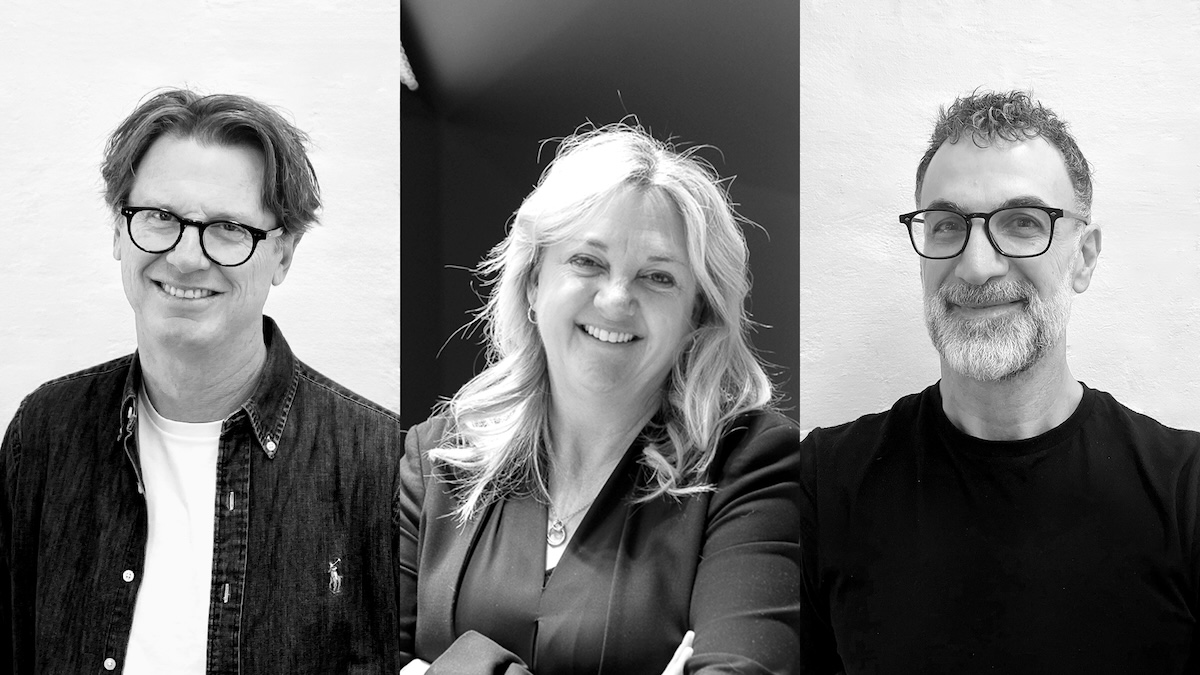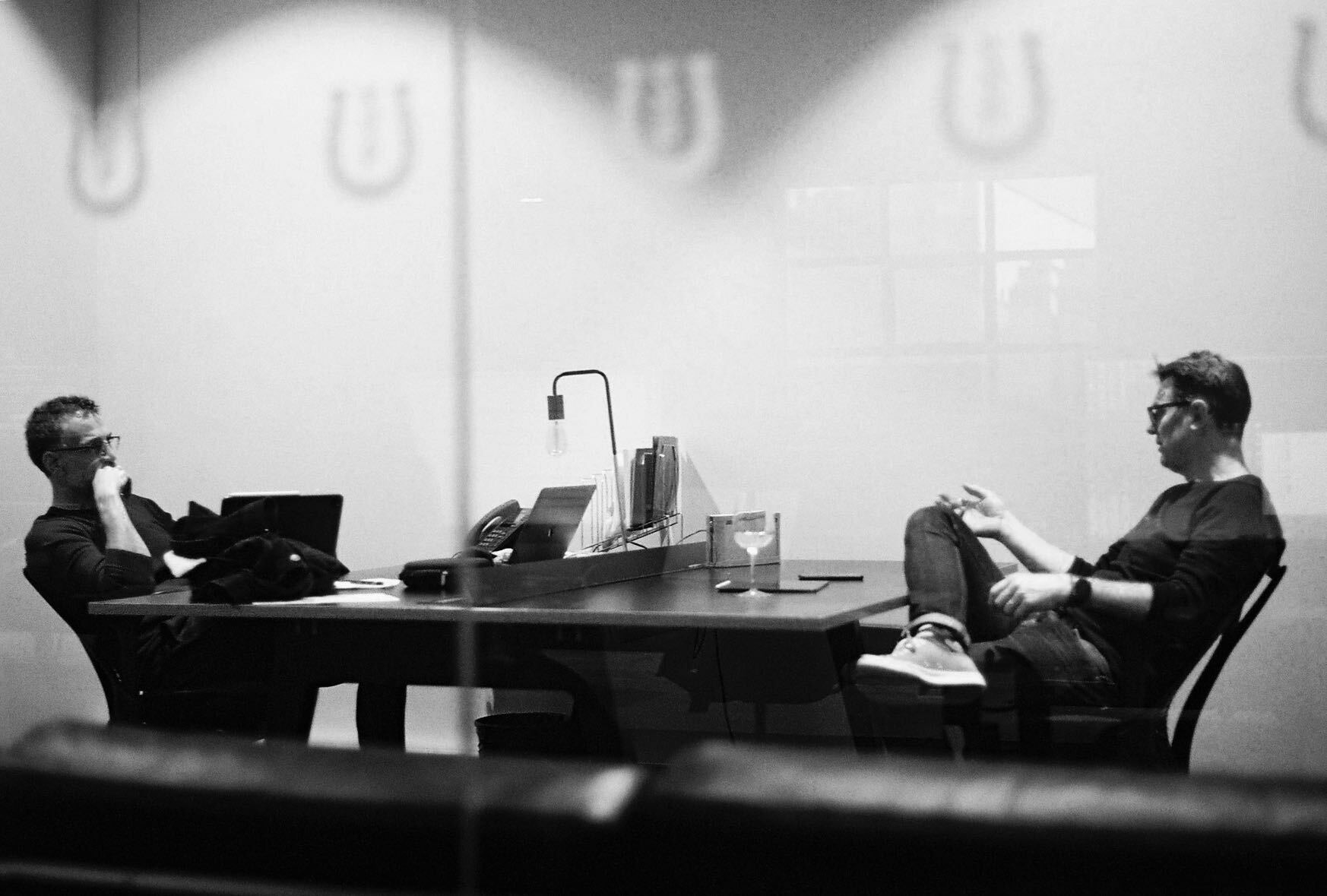Earlier this year Showpony was named Campaign Brief #4 Small Agency of the Year. Here CB sits down with Showpony Advertising’s managing director Jamie Scott and executive creative director Parris Mesidis to chat about how the 25+ year old agency keeps it fresh, the benefits of operating on a smaller scale and the agency’s ‘inescapable vortex’.
Campaign Brief: Showpony has been around since the 90’s so how do you keep it fresh?
Parris Mesidis: When starting out, and I’m talking 3 people, maybe 2 clients and exactly 0 idea about how the game was played, we used to joke that our big picture ambition was to make it all they way to #4, and that’s in terms of Adelaide agency rankings! At the time it seemed as funny as it was impossible.
Jamie Scott: Yes! All the way to #4! ! It was a joke but we were also tapping into a challenger mentality that’s served us well over the years. I mean we definitely were the underdog! The underdog’s underdog even, but it was also a motivator. It pushed us, made us fearless.
PM: We didn’t just respond to briefs, we attacked them. Every piece of business that came through the door was a hard won opportunity. And it was all one-off, project based stuff. If we didn’t nail it – see you later.
JS: It was pretty intense but work ethic was all we had. No real credentials, no reputation and none of the resources of our competitors. So we just outworked them. We wanted it more and clients could see that, in our attitude…in how prolific and creative we were.
PM: In time we realised that we didn’t just work that way because we had to, we worked that way because we liked it. We’re naturally
competitive. And being deliberately smaller is a structural decision that allows us to hold on to that intensity. A series of smaller, nimble offices that value every opportunity. The difference now, 25ish years down the track, is that each office has the benefit of being able to tap into a bigger pool of talent and experience when they need to.
JS: And yes, we’re still aiming for #4, but we’re not talking just Adelaide anymore.
CB: The Bridgestone win was a turning point for you guys. What was that like?
JS: I can’t remember how we got on their radar but I do remember walking into a boardroom that looked like a set from Anchorman and thinking, “Holy crap we have no right to be pitching for this”. But we were totally invested in the work and obsessed with the outcome and I think they sensed that about us. Anyway, they loved the work and we won the account over some much bigger network agencies. Next thing you know we’re going to award shows in New York and London off the back of the work we produced.
Fast forward a decade and our work for Bridgestone is being rolled out around the world.
PM: Yeah, “Hands” went nuts. It was a proactive idea that inexplicably inspired Bridgestone to take the account out to pitch. Anyway, after winning the pitch we got to execute our proactive idea and it took off. It was actually picked up internationally and used in markets around the world. And it’s still on air in Australia 10 years later. That was a big level-up for us. In a very real sense we were world class.
JS: That was also that campaign that helped us understand our own approach to advertising beyond the purely instinctive.
CB: Does smaller work for clients?
PM: Can I please just get this out of my system?
JS: (Sigh) OK man just do it so we can move on.
PM: It’s not the size of our agency but what we do with it that our clients enjoy… thank you.
JS: Anyway, our clients seem to love it. Obviously if they didn’t they wouldn’t be clients but you get what I mean. A connected smaller team that’s super invested and accountable to clients, works.
PM: Relationships are closer too. The people who do the work interact directly with clients. That intimacy builds trust and confidence. That’s why we can push concepts further than most. Actually, I think it has a lot to do with why we tend to come up with so much proactive stuff. We’re in sync with our clients. Smaller makes that possible.
JS: That said, they (clients) also like knowing there’s a whole other gear they can shift to with respect to the national pool of talent and experience our model provides.
CB: What about staff?
PM: Small works for staff too on a number of levels. It means that anyone new, regardless of seniority can have a big impact, on culture, on the work, everything really.
JS: One of the things we’ve learned to do is build our service offering around the skills and interests of the people we hire. So if someone new comes on board and they’re passionate about, say, creating music, we’ll find ways to incorporate that into their professional lives.
In fact one of our writers is a frustrated muso…very frustrated… and some of our most successful campaigns have been off the back of stuff he’s composed without being on the actual account.
PM: Yeah, that’s how it works, small means you’re across everything and that your input is always welcome. Attribution for your input of course, another story.
JS: We always joke about the ‘inescapable vortex’ of working for Showpony because so many of our staff are on their second or even third tour of duty with us. I think that has something to do with the experience of really feeling like an integral part of the team.
PM: You’re right, man. We’re often people’s first agency gig so it’s understandable that they want to move on and experience other things including life with the big networks. But they (almost) always come back. Adelaide’s MD, Melbourne’s GM and CD, our head of culture, head of strategy… the list goes on… they’re all ex-Ponies who have come back after working for bigger outfits.
CB: There are a lot of indies emerging at the moment, what do you think is driving that?
JS: I’m meeting a lot of marketers who seem to enjoy feeling important to their agency, like, central to the success of the place, and closely connected to the creative team. Indies provide that access.
PM: And it’s a two way street. I reckon most indies start up because creatives want to be closer to that kind of client, but it’s also to get away from the head office bullshit corporate mantras like “disruption engine” and “inspiring human ambition” and other platitudes. Surely helping clients make an impact in their market is the point of being an agency.
JS: Definitely. If you love being creative, you want to demonstrate the power of that creativity and impacting consumer behaviour on behalf of your client is the ultimate great measure.
PM: To be fair, who doesn’t want to be involved in an ambitious, energetic culture…but also see the impact of their effort for the client.
JS: It’s that culture that acts like a recruitment superpower for us. I mean, no doubt we’ve also been lucky with recruitment – but culture definitely plays a central role.
CB: So you’re not finding recruitment difficult at the moment?
PM: Well, we’re not recruiting from one talent pool anymore which helps. We hired a team in Sydney recently and we don’t even have an office there!
JS: And that’s so easy in the post lockdown era…being able to move between cities suits us. We’ve got this thing called Showpony Exchange where we promote working from different offices so that people get to mix it up, work with a different crew. Everyone loves it. Culture again I guess. Hobart is the hot destination right now.
CB: Yes, Hobart. That was an unusual choice to open an office. Was it to service a client?
PM: No. I wish it was! Actually, Scotty and I went to check it out and were inspired by the crafty nature of the place. They nail craft in all sorts of ways from booze to boots and we wanted to explore that, see what it did for us creatively. New environments shape the way we think and act and Tassie is giving us that in spades. It’s really having an impact.
JS: We’re almost six months in and definitely feeling the place. We’ve hired a couple of Hobartians and picked up a couple of clients so it’s a proper thing now. And Hobart, like Melbourne before, is adding a massive buzz to the agency group. Everyone wants to be a part of it.
CB: You mentioned culture before. Do you think that’s what makes agencies different from each other?
JS: 100%. That’s everything. That’s the character of the place, the attitude and ambition for the work. You can smell it a mile away. And we take that pretty seriously too, living our values, delivering on our promises and being flexible.
PM: Yeah we’re flexible. We’re a yoga studio of work hours and conditions that suit every whim, I mean, individual’s needs. It’s actually key – so much more valuable than throwing a table tennis table or foolsball table in the corner.
JS: Foosball.
PM: What?
JS: It’s called a Foos-ball table. Foos. Like the band.
PM: Whatever. It’s a stupid game and a stupid name and it doesn’t build culture. If you have a “foos-ball” table in your agency you’re doomed.
JS: Anyway…point is that flexibility is about as important as it gets. Also, we have about a quarter of our staff up for long service leave so I reckon that says something about retention. And there’s that ‘inescapable vortex’ we talked about. I think there’s 8 staff who’ve returned to the fold. I love that…there’s something about that you know.
PM: Absolutely. Shaping the values with the team, listening to what they think is important and growing the business around our collective ambition means that it’s their agency as much as it is ours, at least, until it’s time to pick up the staff lunch tab.
JS: Ha ha ha! Fuck me, that’s so true!




